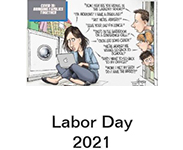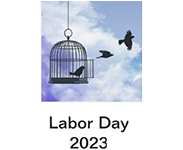An Attorney to Fight for You!
Affordable Rates
Wage Claims
An employer’s refusal to pay wages to an employee for time that the employee has already worked for the employer is inexcusable – and I get a particular satisfaction in pressing forward to successfully get those wages for my clients.
Wage claims can include not just claims for regular wages, but can also include claims for overtime pay as well as claims that an employer has paid the employee below the minimum wage rate.IWPCA Claims
While the IWPCA “does not establish a substantive right to overtime pay or any other kind of wage,” a cause of action may lie “based on wrongfully held compensation pursuant to a contract or agreement.” Enger v. Chi. Carriage Cab Co., 77 F. Supp. 3d 712, 715-16 (N.D. Ill. 2014).
To establish a claim under the IWPCA, a plaintiff must demonstrate that “wages or final compensation is due to him or her as an employee from an employer under an employment contract or agreement.” Landers-Scelfo v. Corp. Office Systems, 356 Ill.App.3d 1060, 1067 (2d Dist. 2005). The contract or agreement can be in writing or verbal. The IWPCA mandates the payment of wages earned by covered employees to be paid by covered employers within a given amount of time. 820 ILCS 115/3, 4, 5.
An Employer violates the IWPCA when it fails to pay an Employee for all of his earned wages at the agreed rate. An Employer also violates the IWPCA when it takes illegal deductions from an Employee’s wages without first obtaining that Employee’s written consent. The IWPCA requires an Employee neither to demand the unpaid wages, nor to establish a fraudulent purpose, of the Employer. Ashley v. IM Steel, 406 Ill.App.3d 222, 241(3d Dist. 2010); Andrews v. Kowa Printing, 351 Ill.App.3d 668, 676 (4th Dist. 2004).
5% Monthly Statutory Interest and Attorney Fees
An employer’s failure to pay wages due the employee can result in an employer being liable for not just the past due wages, but also liable for interest and penalties (for overtime and minimum wage claims) as well as liable for the employee’s reasonable attorney fees (for not just overtime and minimum wage claims but also for failure to pay regular non-overtime and non-minimum wage claims).
In this regard, the IWPCA itself specifically provides that:
- Any employee not timely paid wages, final compensation, or wage supplements by his or her employer as required by this Act shall be entitled to recover through a claim filed with the Department of Labor or in a civil action, but not both, the amount of any such underpayments and damages of 5% of the amount of any such underpayments for each month following the date of payment during which such underpayments remain unpaid. In a civil action, such employee shall also recover costs and all reasonable attorney’s fees. 820 ILCS 115/14(a).
This gives the employee much more leverage to receive the wages due him or her – and frequently I have been able to obtain such wages for the employee quickly through a particular wage demand letter that I prepare and send out, without even needing to file a lawsuit or administrative claim.
Note also that an Employee can file a claim directly in Court or file with the Illinois Department of Labor. Moreover, after a wage payment demand from the Illinois Department of Labor, an Employee may still file a civil claim for owed wages. Krause v. USA DocuFinish, 2015 IL App (3d) 130585, 390 Ill. Dec. 343, 28 N.E.3d 996, 2015 Ill. App. LEXIS 163 (Ill. App. Ct. 3d Dist. 2015). In Krause, the circuit court was not divested of jurisdiction over a small claims action to recover wages from a former Employer after the Employee filed an administrative claim that resulted in the Department’s issuance of a wage payment demand.
Elements of a Claim for Breach of Contract
Sometimes an Employee for various technical reasons (for example there may be a question of whether the individual is an Employee or an Independent Contractor to which the IWPCA does not apply) may want to bring a breach of contract claim in addition to, or instead of, an IWPCA claim. In order to recover for a breach of a contract, a plaintiff must establish these elements:
- the existence of a valid and enforceable contract;
- performance by the plaintiff;
- breach of contract by the defendant; and
- resultant injury to the plaintiff.”
Henderson-Smith & Assoc. v. Nahamani Family Service Center, 323 Ill.App.3d 15, 27 (1st Dist. 2001); Zirp-Burnham v. E. Terrell Assoc., 356 Ill.App.3d 590, 600 (1st Dist. 2005).Illegal Deductions from Wages
The IWPCA prohibits Employers from taking deductions from wages except under specific circumstances, and then only where made with the express written consent of the employee, given freely at the time the deduction was made. See 820 ILCS 115/9.
Some employers attempt to take wage deductions unilaterally, without an employee’s voluntary and signed consent at the time of the deduction (which is a strict statutory requirements that protect the Employee), which wage deductions are is also illegal (even if the Employee is/ was aware of this taking during the Employee’s employment, and even if the Employee did not verbally or otherwise object to these deductions during the Employee’s employment), and which is an issue that I can likewise address.Procuring Cause Doctrine
Some Employers terminate an Employee’s employment shortly before that Employee is to be entitled to a commission that the Employee earned, with the Employer then refusing to pay the Employee that commission.
Illinois has something called the Procuring Cause Doctrine that provides that in the absence of contractual terms to the contrary (e.g., that the Employer expressly provided in writing that an employee is not to receive commissions for sales made after termination – which is not the case here) that a salesperson can recover commissions on sales made after the termination if the salesperson procured the sales through his activities prior to termination. See Technical Representatives, 107 Ill.App. 3d at 833; Solo Sales, 299 Ill.App.3d at 852-53.Voluntary Payment Doctrine
There are occasions where an Employer, in attempting to defend against a wage claim brought by a current or former Employee, may threaten – or attempt to claim by a counter-claim – that the Employer previously made overpayments to that Employee, toward obtaining a set-off against the underpaid/ non-paid wages that the Employee is claiming against the Employer. Yet Illinois follows the Voluntary Payment Doctrine, which generally prohibits the recovery of such overpayments in any form, whether in cash or by set-off.
As a general rule, payments voluntarily made cannot be recovered. See Illinois Graphics Co. v. Nickum, 159 Ill.2d 469, 491 (1994) (payor relying on mistake of fact to recover voluntary payment must plead it); Ergo v. Int’l Merch. Servs., 519 F.Supp.2d 765 (N.D. Ill. 2007) (under IWPCA, payor must show an agreement to repay overpaid compensation, and payor-employer cannot establish mistake of fact where it discovered overpayments only during lawsuit by examining its own records). Similarly, in Ryl-Kuchar v. Care Ctrs., Inc., No. 05 C 3223 (N.D. Ill. 2006), Judge Holderman granted summary judgment to Employee on Employer’s counterclaim for recovery of overpaid wages and car allowance where her time sheets should have put Employer on notice that she had reduced her hours worked. Employer’s overpayment was not a mistake of fact because (citing Illinois Graphics, supra) the facts had been known to the payor; Employer was simply careless in failing to act on facts known to it, which does not satisfy any exception to the voluntary payment doctrine. Opinion at 4.
The IWPCA anticipates that Employers will occasionally have such claims, and has a procedure to guide them: Employer can seek Employee’s written agreement to a deduction for an overpayment, and then sue if employee won’t agree. See 56 Ill.Admin.Code §300.900.Illegal Termination in Retaliation for Making an Internal or External Claim for Wages
While the typical/ “classic” retaliation claim involves a situation where an Employer terminates an Employee in retaliation for claiming discrimination, there are also other types of protected complaints – one of which involves a situation where an Employee internally or externally makes a claim for wages that he or she is owed.
In this regard, 820 Ill. Comp. Stat. § 115/14(c) of the IWPCA specifically provides that:
“Any employer, or any agent of an employer, who discharges or in any other manner discriminates against any employee because that employee has made a complaint to his employer . . . that he or she has not been paid in accordance with the provisions of this Act . . . is guilty, upon conviction, of a Class C misdemeanor. An employee who has been unlawfully retaliated against shall be entitled to recover through a claim filed with the Department of Labor or in a civil action, but not both, all legal and equitable relief as may be appropriate. In a civil action, such employee shall also recover costs and all reasonable attorney’s fees.”
In Parise v. Integrated Shipping Solutions (NDIL 2017) the Employee claimed that he was terminated in retaliation for his having internally claimed to his Employer that he not been paid in accordance with his written employment contract. The Court (U.S.D.J. Joan H. Lefkow), in denying the Employer’s motion for summary judgment, cited the above statute and found that the Employee had stated a valid retaliatory discharge claim under the Illinois Wage Payment & Collection Act. See also Cardenas v. Grozdic, 67 F. Supp. 3d 917, 927, 2014 U.S. Dist. LEXIS 125666, 24 Wage & Hour Cas. 2d (BNA) 657.
Note though that Courts frequently look very closely at such retaliation claims, seemingly looking for an excuse not to find actionable retaliation under the IWPCA – so an analysis by an attorney well-familiar with this area of the law can be critical.
- Is your employer refusing to pay you wages that you are owed?
- Is your employer taking deductions from your wages without your voluntary and signed consent at the time that the deductions are made?
- Were you terminated from your employment in retaliation for you having claimed (internally or externally) that you were not being paid agreed-upon wages?
If you believe that you are owed wages from your employer, or believe that your Employer retaliated against you for your internal or external wage claim, then call me to briefly discuss if it makes sense for you to come in for an appointment to my Chicago loop office to further discuss your employment situation.



















